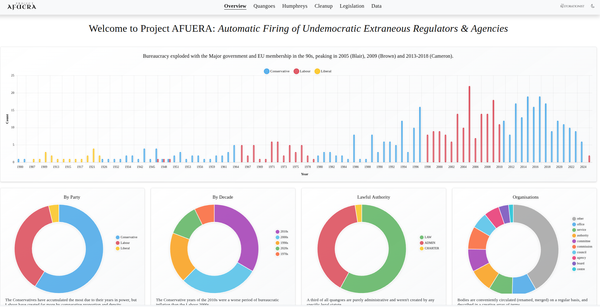Modern Slavery: Understanding Indian Recruitment Fraud

The scale of "Desi consultancy" outsourcing and H1B scams infesting IT through job sites such as LinkedIn, Indeed, Dice, and others has reached an almost unmanageable level. The breadth and sophistication of these schemes is staggering, and cheap AI subscriptions have made things 1000x worse. What's difficult for US domestic workers to understand is exactly what's going on behind the scenes. If you're wondering why you've applied to 1000 jobs in 3 months without a reply, this is going to make grim, angry reading. It might explain why every advert is now tagging on a question about US work authorisation.
There are 14,000 call centres in India. Each with 500-1000 workers providing access to LinkedIn, Dice, ChatGPT, and VoIP. Each person has a quota of resumes to reach every week.
To understand the broader cultural context of why this is specific to India, skip to the bottom. Four factors are exacerbating the problem.
- The increase in remote opportunities due to Covid;
- DEI quotas (you know why);
- Employers tempted to replace domestic positions with team outsourcing ("augmentation") because of recession and massive inflation;
- Tech platforms offering the means and content for conducting fraud.
How The Desi Consultancy Scam Works
The criminal enterprise is a highly-sophisticated routine, which is driven by the "offshoring" or "outsourcing" trend. There are thousands of these companies, and tens of thousands of their "recruiters". "Desi" means "local" or "nearby" in Hindi.
- A middleman company (the "Desi consultancy") working as a tech "consultancy", incorporated in the US by immigrant Indians, attempts to work as an "outsourcing" firm from US domestic soil. It is usually founded by Indians who have gained US residence.
- The Desi middleman posts thousands of plagiarised job ads on tech job websites to harvest piles of resumes and appear credible. The resumes are sold back to Indian fraud companies for identity theft, or spammed to legitimate recruiters as lists of candidates for legitimate positions, in the hope of a 3rd party commission.
- Tech hopefuls in India, or on US campuses (F1 visas), are lured by elaborate deceptions promising permanent residence in the US, free training, free accommodation, and high-paying "ghost" client jobs. If they get a visa (which they may have to pay the "consultancy" to hire them on), they are enslaved to the Desi consultancy as their employer and quickly find out they unwittingly made a deal with the Devil.
- The Desi consultancy sells on-shore "team augmentation" and "tech staffing" to US or international companies wanting to save money, using the US tech industry's prestige, which are fulfilled by these H1B slaves or a centre in India. Instead of paying $200k for a full-time employee, they pay $80k for a whole "team" in India on contract. The "consultancy" pockets $60k from contract (leaving the student with $20k/year or being deported), and another $20k commission from the outsourcer doing the actual work.
The entire thing is a sophisticated front operation for brokering dodgy outsourcing, from US soil. Some of these "consultancies" are becoming exceptionally high-tech, using automated "AI interviewers".
It's a form of modern slavery. Mexican "coyotes" do it at the border for kitchen jobs; Indians do it in computer science with visas.
US employers have their systems jammed up with fake resumes within minutes of posting a job, and domestic US workers spend months applying for hundreds of jobs they were never going to get a response from in the first place. Then US employers nuke salary positions for crappy sweatshop code spaghetti they have to pay twice to fix.
It's worth saying up front that many, well, some, of these "recruiters" may be genuinely trying to work as a 3rd-level "lead generator", "scout", or "sourcer", in an attempt to earn a commission. They find candidates, and pass them to the hiring recruiter, fishing for a kickback. In some cases, they hope carpet bombing 10,000 resumes as a 3rd or 4th party might lead to one of them being hired (or even interviewed), getting them a check.
Or in rare circumstances, they're looking to make their way up the corporate ladder themselves. Bottom-feeding can be a pathway into something better. It's possible, but it's unlikely.
It's possible, but no-one seems to have reported it happening successfully yet.
Malicious Technology
Indian scams are normally fairly recognisable through broken English and bad location knowledge. However, the advent of cheap AI has made it simple to generate legitimate-sounding jobs, resumes, and emails which hide these giveaways.
AI Chatbot Interviews
Indian programmers are taking advantage of GPT APIs which can generate full conversations and technical tests. The data collected from them is for a spam database or to provide answers for another (Indian) candidate.
- You receive a message inviting you to an "interview" on Skype which is entirely text-based with no human moderator. The reason given is its a screening tool for filtering large amounts of applications, on behalf of the end client.
- You receive a message inviting you to a first-round "technical test" with a synthetic voice, which appears entirely legitimate and is a well-developed browser app. But it goes nowhere regardless of how well you do or how deep the process runs.
AI-Generated Websites
- GPTs can create entire websites in minutes, with legitimate-sounding copy. Many of these have broken SSL certificates, generic graphics, US virtual office addresses, and jargon languages.
- Company names and specific dog-whistle fraud names are usually abstract and designed to sound like US corporate slang (modeled on InfoSys, the giant):
- solutions
- tek
- info
- technologies
- -Tech, Inc
- consulting
- consultancy services
Voice-over-IP Numbers
The US generally doesn't require anyone to prove they live in a certain zipcode to change their number. Anyone can get a US forwarding number for Skype or other internet telephony service.
- Indian recruiters will obtain Google Voice forwarding numbers and call candidates from a "trustworthy" number in the same area as the fake job they are advertising.
- VoIP numbers can have their caller ID adjusted to display an "Anglo"-sounding name, which changes later to an Indian one.
Identity Theft
Big lists. Databases. Spreadsheets. Carpet-bombing massive lists of scraped data. They want to get at the contents of your resume. The goal is to extract personal information from your documents and use it for impersonation elsewhere. The key thing to understand is Indian scammers believe representing themselves as a Western person is more effective at gaining a person's trust.
Resume Harvesting
Fake job advertisements are posted on all the major websites (often reworded with AI). Copied, lifted, plagiarised, pasted. You apply, and never hear back. Your data is being extracted and put in a spreadsheet. Either your previous employers, or you, will be getting emails.
These resumes are sorted into lists and spammed en masse to genuine recruiters for "commission" or kickbacks. Examples here: https://www.linkedin.com/groups/1876537/
"Spicing" The Resume
This is the term used to describe adding fake experience or credentials to a person's history. Other people's resumes (obtained from a job site) are mined for copy/paste paragraphs which are added to a (potentially fake) candidate's application.
Employee Impersonation (Catfishing)
LinkedIn give you every you need to create a duplicate of a real person. The worst of the scammers use email and messaging to lure legitimate candidates with copies of genuine job openings.
- Find a major company hiring tech positions (e.g. Fashion Nova);
- Look up real employee names on LinkedIn, and steal the photos, contact info.
- Register a similar domain with SSL (fashionnovacareers.store)
- Email a resume database with an identical email, localised VoIP number to their office location, add Whatsapp photo contact, etc.
Real life example: https://www.reddit.com/r/graphic_design/comments/12jrbje/possible_scam/
Resume Cloning
Someone obtains your resume, and swaps the contact details for their own. Either your work history (and photo) with their address in India, or their work history with your address in the US. With a database of thousands of resumes, you can swap, impersonate, etc at will, and charge people in India for it.
Exam Imposters (Proxy Interviews)
One of the most spectacular and brazen parts of the fraud process is how developer mills use patsys and imposters for "in-person" webcam calls.
- An "interviewee" attends the Zoom, Teams, or Meet video call and introduces themselves, confirming information on their "resume".
- For one or another reason, the webcam video switches off - technical malfunction, too much daylight, etc. But the call continues with the same voice.
- A 2nd hidden "coach" or more technical developer sitting on a desk nearby types the answers to the actual tech questions or does the tech quiz.
This is part of a job-sharing scheme. The new "employee" attends meetings, sends emails etc during US hours, but an outsourced team of Indian developers do his or her work (usually overnight). The work is sent in the morning. The "employee" shares the salary with the "outsourcing" code-mill at 50/50, 40/60, 30/70 etc.
Immigration Engineering
Entering the US is tricky. You can marry an American, be a family member, get an inter-company transfer - but there are only 70,000 tech worker visas available every April. You need a degree, and special skills. And a US sponsor.
Credential Fraud
This one is simple. Entirely fake educational institutions, fake degrees, fraudulent test results, and so on, are manufactured on paper for visa applications and job applications, by Indian counterfeiters. US employers can't check them.
Exam fraud is so staggeringly widespread in scale in India it has made the news many times.
Virtual Staffing Agencies (Desi consultancy)
The outsourcing business has arrived on US shores. Instead of talking to an Indian company, it's a US LLC based in a US city bidding for "staff augmentation". With its employees in India.
"Desi" means "local" or "native" in Hindi. A "Desi consultancy" is a tech firm established on US soil local to the US inside the tech industry.
- An Indian H1B or their family contact has gained US residency.
- They start a US-based "shell" company, small LLC, or any kind of legal entity.
- The company has a website, a phone number, a virtual office address, or a parking lot from Google Maps.
- The new "staffing augmentation agency" bids to usurp and replace full-time salaried job positions at 50% the cost, offering a full "team" instead of a US worker. They share the contract value with the outsourcer, whom they generate the lead for.
- Or - the "staffing agency" conducts blatant H1B immigration fraud by hiring ghost tech workers, or Indians paying to be hired fraudulently.
Visa Fraud
To apply for an H1B visa, US employers are required to demonstrate they have searched, and cannot find, the skills and experience they need in the domestic workforce. It starts with an Indian who wants an H1B, and a fake/plagiarised job post.
- Fake "recruiters" obtain large amounts of US domestic resumes, and use them as evidence they have "screened" them without success. Domestic candidates never receive a reply because they are looking for a "no".
- Recruiters go through screening processes with qualified domestic candidates, but deliberately derail it by offering too little salary, falsely disqualifying the person for spurious reasons, or other deficient conditions.
Either way, the H1B Indian (or a pool) ends up as the only qualified candidate which could be found for the role. Everyone gets paid.
And if they get in, the sponsor has absolute power over the candidate.
Competition Blocking (Right To Represent)
When you give agreement to an agency to represent you exclusively (which all of them require, to lock out competitors), you cannot be submitted to the same job by different people. The "right to represent" you is a blocking tool.
- An Indian candidate has applied, and paid a "recruiter" to contact other applicants for the job. That recruiter will get you - and the other competitors for the role - to agree to exclusive representation by them, but never submit you. If they do, they tell the client you declined.
- The recruiter deliberately obtains this false "right to represent" not to submit you at all because they are in favour of a different candidate. An Indian one who will give them a "commission".
Workplace Takeover
Ever wondered when a department employs more than one Indian employee, it eventually becomes Indian-majority? It's not because they like each other.
Collectivisation (In-Group Prejudice)
Indians are infamous for their "us vs them" unionised review bombing, mass-reporting, and group-bullying behaviour. This can be seen endlessly on Twitter (also see here: https://www.firstpost.com/india/facebooks-hinduphobia-metas-adversarial-threat-report-says-de-platformed-hundreds-of-pro-hindu-accounts-in-india-11014581.html), where WhatsApp groups of thousands collude to brigade accounts they believe are hostile to India.
- Employees confirm each other's false reports about non-Indian colleagues to bully them out;
- Interview panels form majority consensus on Indian candidates, regardless of whether they are the most qualified.
Train-and-place (Bait n' Switch)
This scam works quite simply: we train you for ten weeks on a meagre salary for an amazing company you dream of, then place you into another company for X number of years which you can't leave. Based on the fact you owe us the "favour" of the terrible training.
- A "middleman" employer fakes an opportunity (via a fake job) which is too good to be true. The catch is you need training, and there's a contract. At the end of the contract, the amazing job doesn't exist. And you're on the same money for an Indian programming company.
- New intern tech graduates - or job switchers - are taken on and told they will go to one of many clients after a training period. The young employee is used as a "fake employee" (an imposter of a much more qualified candidate) to make the "staffing agency" look credible when grafting contracts from new clients.
Kickbacks
Offering a tithe, a commission, or a skim is perfectly normal in Indian culture. The British ruled the area by paying off local rulers with money and titles (see: https://www.thehindu.com/opinion/open-page/how-our-british-rulers-legalised-bribery/article2442485.ece)
- The new employee is expected to "gift" the hiring manager.
- The hiring manager is "owed" something by the other Indian they hire for the "favour" they have done them.
- No "secret conversation" is required here. It's already expected, culturally. The only question is when, where, and how, you will be paying the commission. It may just be your loyalty vs your deportation.
Why Are Indians Like This?
Americans are naive to Indian culture as a whole, for obvious reasons. Many in the Anglosphere are, as we have a sense of natural proximity bias (assuming the greater world operates like the one we live in). But Indian culture - an old, old world - does not play by the same rules. At all.
India is as large as China, population-wise. But its GDP is less than California, and about the size of the UK or France. There's a reason for this: endless daily corruption, and low cooperation, because of constant individual perfidy. It could be a superpower, but its culture of dishonesty prohibits the high-trust cohesive functioning superpowers are based on.
Start by learning about the Caste system: https://www.theguardian.com/books/2018/aug/02/ants-among-elephants-sujatha-gidla-amit-chaudhuri
Commissions, Tithes, Kickbacks, and Bribes
Indian business works on a simple principle: everyone gets a little cut of the pie. Everyone expects everyone else to offer up a slice for "favours" and their "help". The candidates pay the recruiters; the outsource shops pay the recruiters; the recruiters pay the outsource shops. It's just business.
Corruption remains “part and parcel of daily life in India,” said a press release from TII. It’s particularly widespread in local-level citizen services, which are “ridden with bribery and kickbacks". Property registration and land issues were the biggest sectors of corruption, with more than a quarter of respondents having paid bribes to the relevant local departments. The police force was next; 19% of respondents said they had paid most of their bribes to police in the past year. People also paid bribes to the tax department, transport office, municipal corporations, and other local authorities, the report found.
CNN: "1 in 2 Indians paid a bribe at least once in the past year, survey finds"
https://www.cnn.com/2019/11/27/asia/india-corruption-bribe-intl-hnk-scli/index.html
No Prohibition Of Dishonesty
Indians are not Christian. They do not have social customs or cultural conventions which shame the practice of lying. It is seen as a perfectly acceptable way to present oneself when getting ahead.
"I was speaking with a medical professional who was proud to tell me of the biologically impossible results at his hospital. In my most restrained and subtle sarcasm I said to him "you should publish your results". His horrifying answer was "yes we did"! Oh my god, I'm sure he has. This was not the first, nor the last time that a highly educated Indian citizen has made something up just to make our conversation comfortable and to make him look good too."
HuffPost: "Indian Tolerance for Dishonesty: An Impediment to True Progress"
https://www.huffpost.com/archive/in/entry/indian-tolerance-for-dishonesty-an-impediment-to-true-progress_b_6420894
Industrial-Scale Plagiarism & Qualification Fraud
Cheating on exams is so rife in India it has almost destroyed whatever credibility the university system had.
In 2022, Delhi police busted a major online cheating ring, helping candidates to cheat in top exams. They had hired Russian hackers to develop undetectable software, allowing them to remotely hack computers in exam centres. Earlier this year The Indian Express newspaper investigated an astonishing 41 documented instances of paper leaks in recruitment exams over the past five years across 15 states, led by governments of different parties.
BBC: "How exam scandals threaten the future of India's young people"
https://www.bbc.com/news/articles/c511j589npyo
Industrial-Scale Applicant Duping
Life's hard in India, jobs are scarce, and wages are bad. Indians think nothing of deceiving their own people to make money. There are thousands of people wanting a better life, and that means scale.
This case is just the tip of an iceberg and the police estimate that over 50 such fake call centers are operating in Delhi, Noida and Gurgaon. Victims of such fraud are spread across India who are initially asked to make a payment of Rs 10,000 to Rs 25,000 for job in IT giants and MNCs. Many of these gangs download resumes from job websites and then target people in faraway cities so that once duped they refrain from travelling to Delhi and registering complaints.
Indian Express: "Over 50 fake call centres in Delhi-NCR duping job seekers: Delhi police"
https://indianexpress.com/article/india/india-others/over-50-fake-call-centres-in-delhi-ncr-duping-job-seekers-delhi-police/?SocialMedia
Predatory Exploitation & Trafficking
Everyone wants to live in America. "Desi consultants" in India sell graduates the full dream. And it's a trap. To say it's trafficking might be too far, but goodness, it's close.
In India, graduates are offered dream jobs by other Indians running LLCs on US soil:
The problem is that wherever you go in the United States nowadays, there are Desi consultants, and unfortunately, they own most of the computer science job industry. Last month I was recruited by a US company, but once I was going through the process, they backed out and told me that I could not be involved anymore. I found out that the job offer came from an IT company from India, who outsourced their work to an American company [presumably a US LLC run by a fellow Indian immigrant]. Once I declined the offer I got strange calls every day from different consultancies. Apart from just calling, they also abused me and asked me why I would not join and why I had wasted their time.
https://www.stilt.com/immigrants/dirty-truth-desi-consulting-companies/
In the US, they lure Indian CS graduates with the ability to transfer from F1 student visas to H1B green cards to stay in the country.
They post advertisements on some websites about training and placement for job in United States, they prefer F1 Visa or OPT (optional practical training) guys than to US citizens and green card holders. If an Indian looks at the advertisement and calls them, they ask if you are on H1b or student visa (OPT) if yes, they offer free accommodation, food and free training for jobs in information technology and if the person calling is US citizen or green card holder, most of these companies reject the job offer not wanting to give them training at all and also charge them high amounts to train them in the subject.
The idea behind these information technology firms providing free training and placement to these H1B holders is to get them transfer or file H1B with their firm and then put some fake experience and these companies send them to clients for jobs.
In other words these IT firms are putting fake experience on their employees resumes and sending them on jobs to their client at different locations.
https://forum.murthy.com/topic/27159-unethical-use-of-f1-and-opt-by-desi-consulting-companies/
Dealing With Indian Recruitment Fraud
Most of the steps are common sense, but it's worth going back over the basics if you're a frustrated US tech worker:
- 1000 applications and no responses could well mean: a) legitimate job posters are being inundated with fake resumes, and/or b) 999 of those jobs you applied to were entirely fake and never going to get a response anyway. Don't take it personally. Legit job posters are dealing with it too from the other side.
- Do not put any sensitive information on your resume (e.g. SSN).
- Use an email forwarding service (with a legitimate domain), not your real email. If the recruiter is legit, you can give them the real one later.
- Use a phone forwarding service, not your real phone. Ditto.
- If you're interviewing someone and the webcam needs to go off, end the interview. Get them to show you the whole room.
- Insist on cameras being switched on for every meeting. Or at leas the beginning.
- Use "live" coding exercises, not "offline" ones, and ensure both monitors are screen-shared.
- Check the domain of the email via WHOIS and the SSL cert issuer.
- Always get proof of ID and visa status - and check it. Question the candidate on how they were contacted and put forward. Tell them they are being recorded.
- Don't reply to job ads which are obvious copy/paste, aren't verified profiles, can't be verified on the external site; don't have obvious US addresses confirmable on Google Maps, etc.
- Don't do any AI chatbot tests before screening and verifying with a human being you can verify.
These fake domestic "consultancy" companies and their "recruiters" are parasites. But their tactics are easily recognisable when you realise the game. Everything they do is about
a) harvesting resume data to sell to other Indian spammers;
b) enslaving young Indian immigrants onto H1B visas with promises of free training/housing, forcing them to accept low wages they mark up and lie on their behalf, or face firing/deportation;
c) conning US companies into replacing salary jobs into "team outsourcing" at 50% of the cost, where they skim both ends of the contract value - the hourly wages, and the Indian outsourcer "lead generation" commission.
DHS, the FBI, and ICE urgently need to fix this abuse, as do the tech platforms like LinkedIn and OpenAI.




